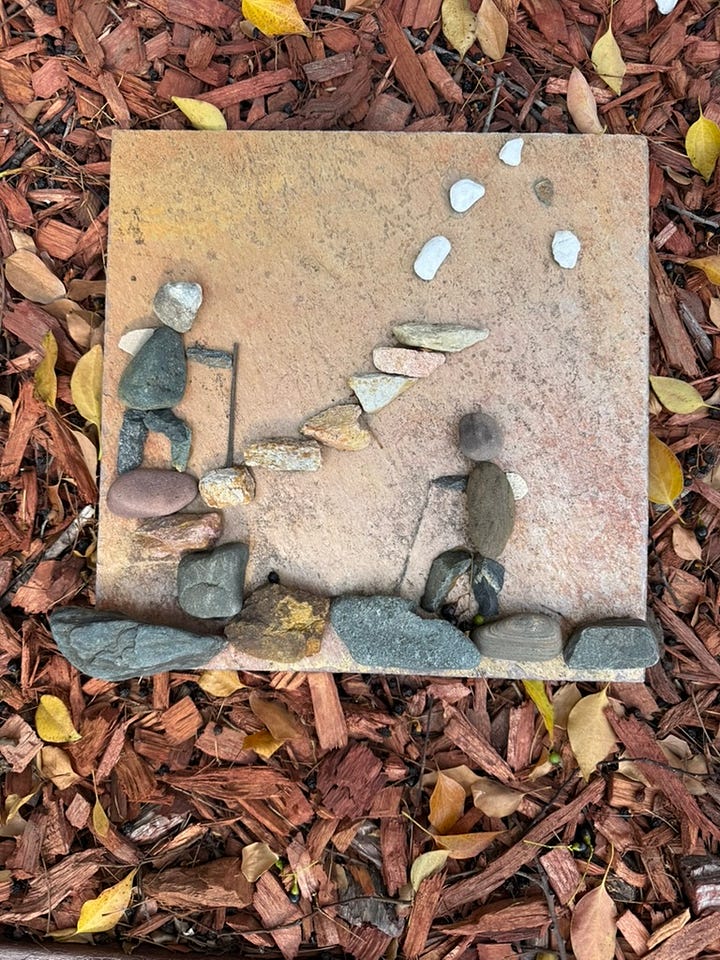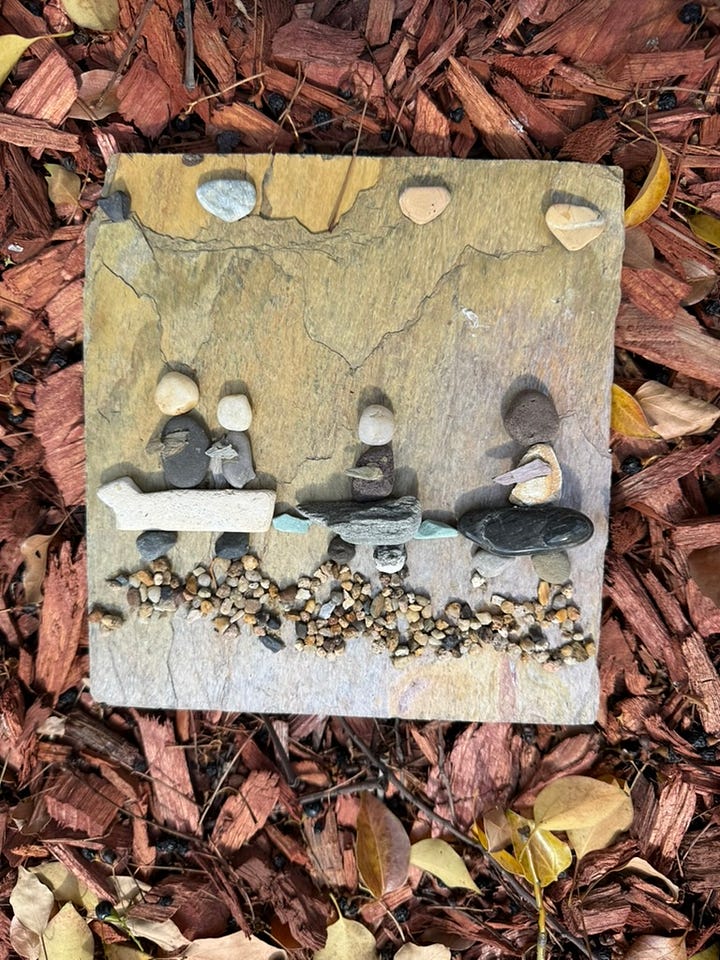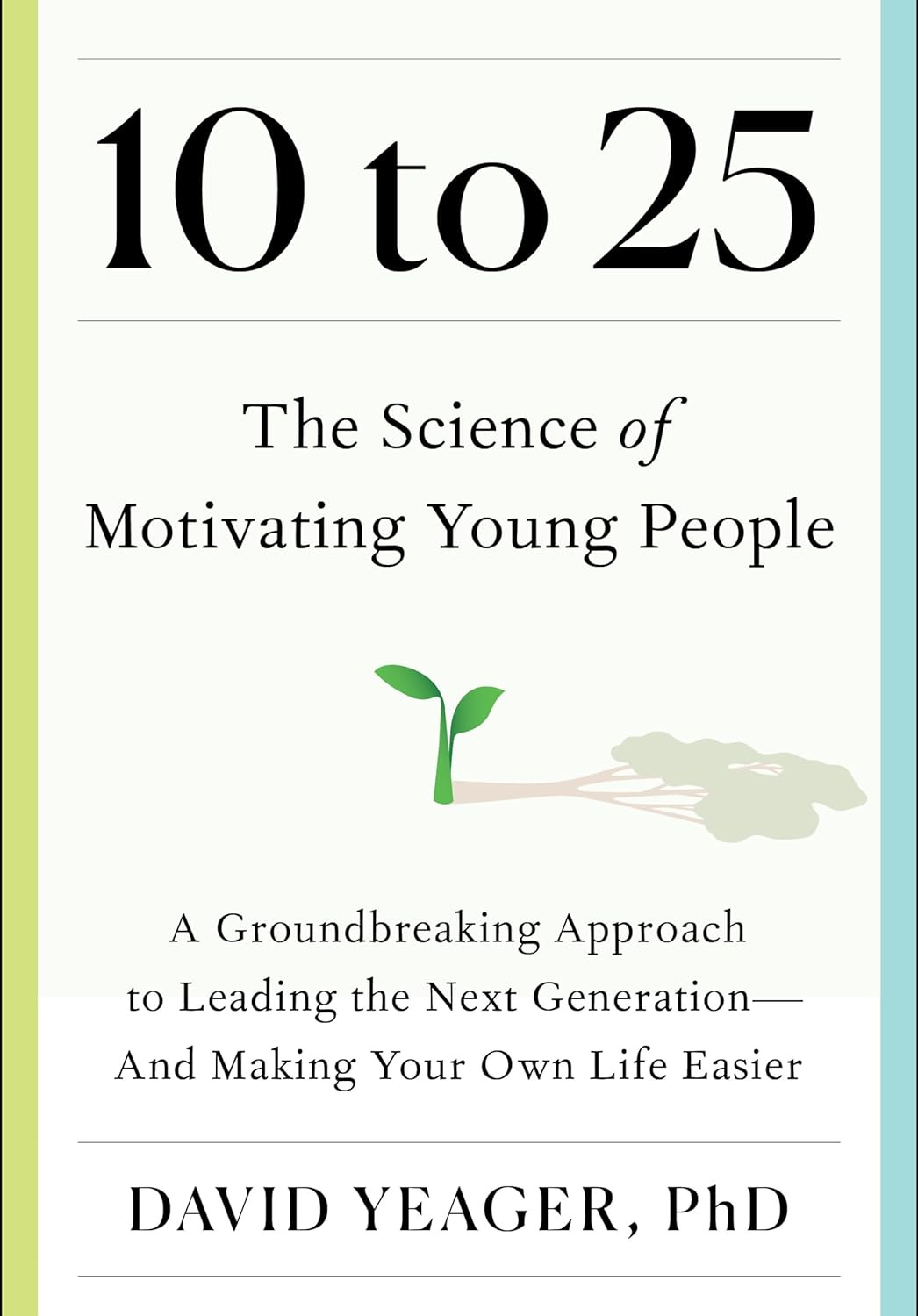Thank you for being here. As always, these essays are free and publicly available without a paywall. If my writing is valuable to you, please share it with a friend or support me with a paid subscription.

I am a warm demander.
I have high expectations because I know you can meet them. I expect much of you, because I know you have what it takes.
What is a warm demander, you ask? Two things. First, it means that I care about you. I want to know you not just as a student, but as another human being. I want you to know me as one too. I will tell you about myself and my family. I want to hear about yours. Tell me about your hobbies. Tell me about your dreams. I want to hear your questions. Not just about the last lecture or the next homework, but about the world that we live in together and what it means. Let's build a friendship, not just in the classroom but outside it too.
You, like me, are a human being. Yes, boundaries between you and me are important, as they are in any relationship. These boundaries should be maintained between teacher and student. This is good and right. But I challenge both you and me: push against them. Let's seek to understand each other not just as teacher and student. Let's not forget that we are both traveling on the same path, just at different points in our journey.
But just because I am warm does not mean that I am not demanding. Despite what you may think at first, these two are not in opposition to each other. When you enter my classes, I will strive to hold to both of these. I will get to know you as a person. I will do my very best to support your learning. I want to see you grow. But to grow, you must face challenges. Those challenges are the demands I will place on you—challenges that I will work alongside you to overcome.
My classes are challenging by design. This is because of a simple fact: there are no shortcuts to learning. Whatever looks like a shortcut is a dead end in disguise. The work we will do together will make demands on you. It will demand your time, energy, attention, grit, determination, perspiration, and struggle.
The struggle is not the point, but it is an unavoidable part of growing. We’re not talking about some sort of Muskian “ultra hardcore” ethos where we push ourselves to the limit to maximize our productivity. That is not the path that leads to flourishing. That is a recipe to push you into the panic zone. And yet, the only way to develop strength is to exert force against something. The panic zone is not good. The comfort zone isn't either.
Years ago, a team of scientists created an isolated ecosystem, the Biosphere 2. They learned something interesting about the trees. They were weak because they never experienced wind. The lack of wind prevented them from developing stress wood. They needed something to challenge them. As do you. Trees need wind. You need wind.
But my demanding demeanor does not mean I am unreasonable or impatient. Just like any other biological process, learning takes time. You need to push yourself, but it is possible to push yourself too hard. Together we can discern where that line is for you and find ways to push against it without crossing it. You are not alone. We are in this together.
When you leave this class, I want to send you with pride. Pride not just in what you have accomplished, but the person you have become. Pride in the virtues you have developed. A greater love for your peers, a deeper appreciation for your field of study, a deeper knowledge of yourself and what you can achieve.
When you come through my class, you'll have a collection of things you have done. Not just a grade on a sheet, but a set of skills that you've demonstrated. This will be more important than any grade I could give you. The grade I give you says "take my word for it," the portfolio of work that you complete speaks for itself.
This is why my demands matter. When I send you out from my class, I cannot go with each one of you to vouch for you and to tell everyone about your abilities. Yes, I can send you a letter on a transcript, but that letter is only marginally useful. It is too compact a measure.
Instead, I send you with a story. A story of what you've learned and the work to prove it. A story of who you were and who you've become. A story to show that you've faced the demands and grown in the face of them.
I am a warm demander. Thank you for the joy of walking alongside you on your journey and getting the opportunity to see you grow.
Got a thought? Leave a comment below.
Are you a warm demander too?
Reading Recommendations
Luddite Pedagogy
In the Chronicle, Brad East makes his case for Luddite Pedagogy. I’m basically on board. I agree that one should not integrate technology into one’s teaching simply because it is new. And yet, we must also remember that chalkboards, whiteboards, paper, pens, and pencils are technology too. Whether or not we integrate a technology into our pedagogy, generative AI or otherwise, the question is how it aligns with our values and what we are trying to do in the classroom. And whenever we use a new technology, we should remember that it is a bargain. Technology is simultaneously enabling and disabling.
My point here is not that everyone else ought to teach like me, a one-size-fits-all approach. Cookie-cutter instruction is the very problem at hand. My point, rather, is that your own version of Luddite pedagogy is a viable alternative. It’s your experience, training, and judgment that count, not some vague cultural mood of irresistible necessity. Within yourself, you already have all the permission you need — in those cases, at least, where administrators have not rescinded the freedom necessary to teach well.
A 3x3x3 reflection on AI’s impact on one instructor’s grading process
In a recent post over at
, does a 3x3x3 reflection on his recent changes in response to AI. These are the sorts of reflections that I treasure from fellow faculty. Even if we may have points of disagreement and each teacher’s approach will differ, sharing one’s reflection on teaching in the way that Robert does here is something that I hope all educators do more of.How do you feel about all this AI stuff?
Here is yet another example of a wonderful reflection by an educator. Over at
, a collaborative Substack curated by , of reflects on how he feels about all this AI stuff: curious, overwhelmed, and frustrated.There is a story of hope and potential that we can tell about our classrooms, yet so much of this AI discussion seems to operate with a deficit mindset around our students and what our current classrooms are capable of—led too often by folks outside the classroom who have lost sight of what is possible with a classroom community.
I feel lots of things, yes, but most of all? I feel stronger than ever that the path forward needs to be one of imagination, and we need to insist that any conversation with AI honors what the classroom already is and stays hopeful about what it can become.
Education Requires Human Connection
Over at
, and I are on the same wavelength. Education, he argues, is about human relationships. I couldn’t agree more. I’m waiting for John’s next book, which I think should be called In Defense of Peanut Butter Pedagogy. If you know, you know.Last week I received an email from my 7th grade pre-algebra teacher saying he enjoyed what I had to say in my Chicago Tribune column about the passing of sportswriter, John Feinstein. I was in his class over 40-years ago, but he remembers me and I remember him. He told me how much he’d loved his job over his many years of service, that it never felt like going to work. Next time I’m in town he offered to buy me a meal at Max and Benny’s, a Northbrook, Illinois institution with legendarily god matzo ball soup and a damn fine reuben that I haven’t eaten at for probably 35 years, but can almost taste just thinking about it..
Why is this not the goal of our education system, the building of relationships, experiences, memories, connections?
The stuff of life.
The Book Nook
I was glad our book club this semester was a “guilt-free” book club because I certainly didn’t manage to read all the assigned sections before our meetings. Nevertheless, as you can probably tell from today’s post, 10 to 25 had a big impact on me. It’s one that I’m looking forward to revisiting more. If you’re looking for something to read over the summer as you think about teaching next fall, consider getting a copy of this. And after you do, consider starting your own guilt-free book club with your friends and colleagues.
The Professor Is In
Last week I tried to give into the vibe. Mostly, the vibe is frustration.
And yet, I think there are some opportunities for creative applications. Today, in my digital electronics and computer architecture class, we are talking about machine language. I had the idea for an activity where students could quiz themselves on encoding RISC-V assembly instructions into machine language.
After fighting with ChatGPT for a while to try and get something, I gave Claude a whirl. A few minutes later, I had an artifact spun up and was playing around with a prototype of my idea. It felt magical. Even more impressively, you can share these with a single click. You can try it out here. If you need a reference for the encodings, you can check out this reference card here.
Leisure Line
We had a wonderful time on Saturday night with a group of seven Mudders at our house. We had takeout from our favorite Indian food place in Claremont, Daddyji. These are the types of interactions that make this warm demander happy.
Still Life


One of the houses on our walk to the playground has a collection of these small stone arrangements near the sidewalk. They are delightful!






This is such a good philosophy, these are the teachers and professors you remember most fondly. It is a good rule of thumb for parenting too. Imagine if there were fewer bulldozer parents and more warm demanders...
My grad school experience at Relay GSE centered around the warm demanding approach. It works on so many levels, but I especially found it useful with middle schoolers. At the MS level, without the warm part you might as well be up a creek without a paddle.
Great article!